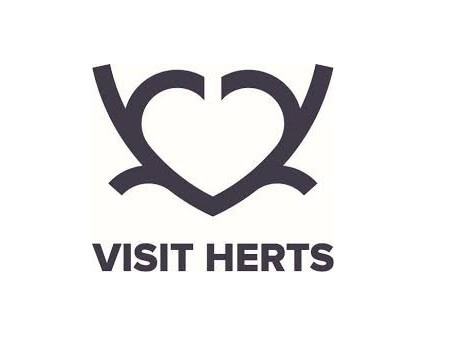Step 4 of England’s Roadmap

Yesterday, the Prime Minister outlined more details about Step 4, the final stage of the England roadmap, which is expected to start on 19 July.
At Step 4, the Government will remove outstanding legal restrictions on social contact, life events and open the remaining closed settings. Guidance will be provided to the public and to businesses on how they can help reduce the spread of COVID-19.
He also announced that the Government will work with the travel industry on removing the need for fully-vaccinated people to isolate when entering the country from amber countries. The Transport Secretary is due to set out more details later this week.
A decision will be made on 12 July if this move can be made on 19 July.
What are the Details of Step 4?
The UK government has published the ‘COVID-19 Response: Summer 2021’, setting out the details of Step 4 of the COVID-19 roadmap in England.
In summary, at Step 4:
- All remaining limits on social contact (currently 6 people or 2 households indoors, or 30 people outdoors) will be removed and there will be no more restrictions on how many people can meet in any setting, indoors or outdoors.
- All settings will be able to open, including nightclubs. Large events, such as music concerts and sporting events, can resume without any limits on attendance or social distancing requirements.
- All restrictions on life events such as weddings, funerals, bar/bat mitzvahs and baptisms will be removed, including the remaining restrictions on the number of attendees. There will be no requirement for table service at life events, or restrictions on singing or dancing.
- COVID-status certification will not be required in law as a condition of entry for visitors to any setting. Organisations can choose to ask visitors for proof of COVID-status, as long as they meet existing legal obligations including under equality law. The Government is providing a way for individuals to easily demonstrate their COVID-status. This can be achieved by completion of a full vaccine course, a recent negative test, or proof of natural immunity – through the NHS COVID Pass on the NHS app.
- The legal requirements to wear a face covering will be lifted in all settings. Guidance will advise that wearing a face covering will reduce personal risk and the risk to others, when coming into contact with people you don’t normally meet in enclosed and crowded spaces.
- Social distancing rules (2 metres or 1 metre with additional mitigations) will be lifted. Social distancing will only be required in limited circumstances: ports of entry for passengers between disembarkation and border control in order to manage the risk of Variants of Concern being transmitted between individuals; and people who are self-isolating should also continue to socially distance from others, particularly where they have had a positive test.
- Regulations that place COVID-secure requirements on businesses, including table service, and distancing between tables, will be lifted. ‘Working Safely’ guidance will be updated to provide examples of sensible precautions that employers can take to reduce risk in their workplaces. Employers should take account of this guidance in preparing the risk assessments they are already required to make under pre-pandemic health and safety rules.
- The Government will no longer instruct people to work from home. Employers can start to plan a return to workplaces.
- Businesses must not require a self-isolating worker to come to work, and should make sure that workers and customers who feel unwell do not attend the setting.
- Businesses will be encouraged to ask staff and customers to clean their hands regularly and clean surfaces that people touch regularly. The Government will provide guidance on how businesses can reduce unnecessary contact in the workplace, where it is practical. Operators will still be encouraged to use outside space where practical, and to consider the supply of fresh air to indoor spaces. Carbon dioxide (CO2) monitors could be used to help identify where a space is poorly ventilated, with businesses encouraged to take steps to improve ventilation if CO2 readings are consistently high.
- Businesses will be encouraged to display QR codes for customers to check in using the NHS COVID-19 app, to support NHS Test and Trace, although it will no longer be a legal requirement.
Building on the updated guidance on meeting friends and family, announced as part of Step 3, the Government will provide advisory guidance on how people can manage the risks to themselves and to others, including:
- Meeting in well-ventilated areas where possible, such as outdoors or indoors with windows open.
- Wearing a face covering where they come into contact with people they don’t normally meet in enclosed and crowded spaces.
- Washing hands with soap and water or using hand sanitiser regularly throughout the day.
- Staying at home if unwell, to reduce the risk of passing on other illnesses onto friends, family, colleagues, and others in your community.
- Considering individual risks, such as clinical vulnerabilities and vaccination status.
The Government will continue to urge people to get vaccinated, and to self-isolate and get tested if they have symptoms. It will remain a legal requirement for people to self-isolate if they test positive or are told to do so by NHS Test and Trace. The public will continue to be encouraged to download and use the latest version of the NHS COVID-19 app to help reduce the spread of the virus.
The Government intends to exempt people who have been fully vaccinated from the requirement to self-isolate if they are a contact of a positive case, with a similar exemption for under 18s. Anyone who tests positive will still need to self-isolate regardless of their vaccination status.
Travel restrictions will continue as part of the UK Government’s plan to prevent the continued emergence of Variants of Concern.
